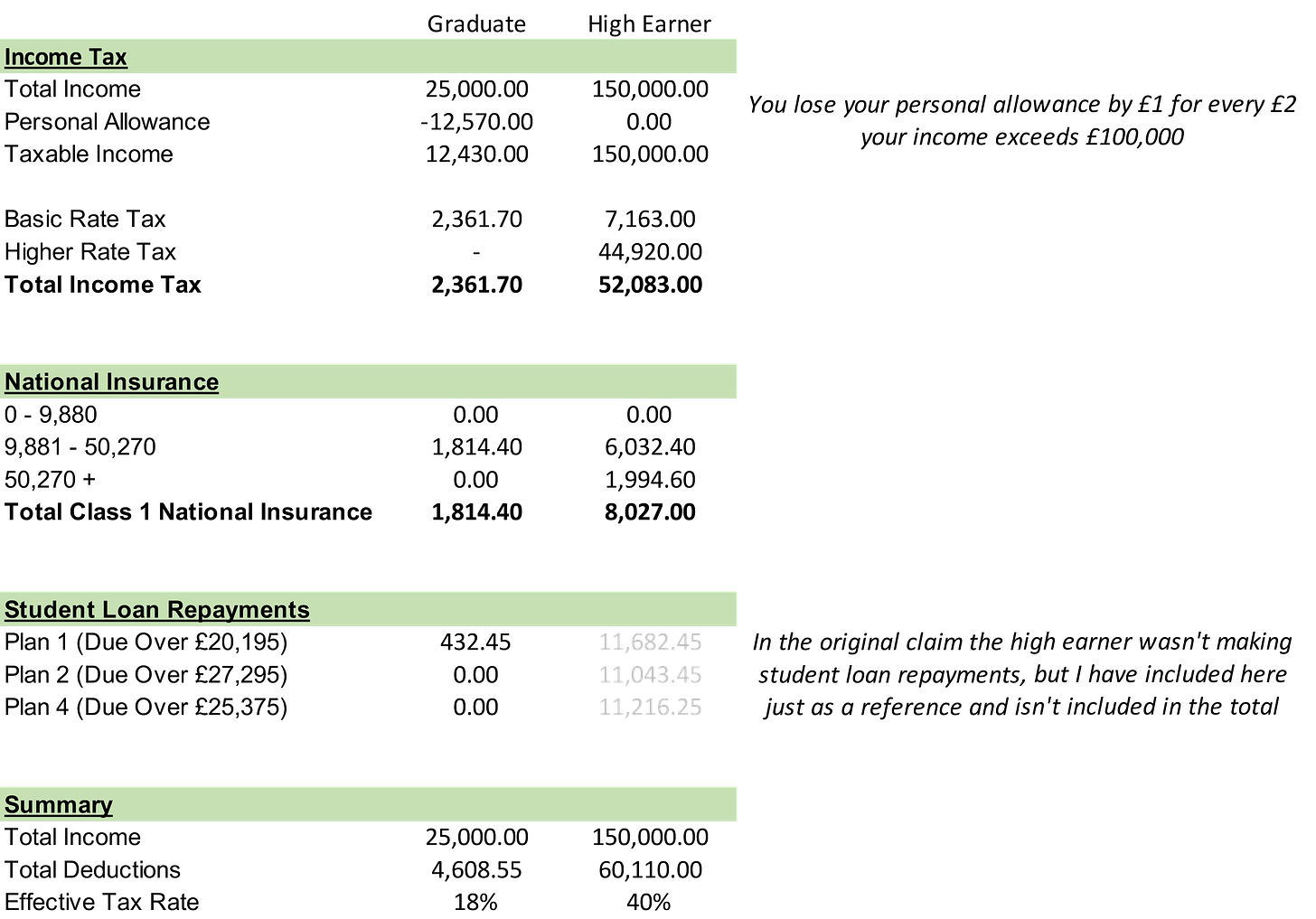After I published the newsletter last night in response to Kwasi Kwarteng’s mini budget, several people contacted me to request more on these kinds of topics. A few people specifically mentioned tax, and I realised that there are probably many people who don’t know much about taxation in the UK because the system is designed specifically to avoid the need for most people to worry about calculating it.
There is a claim going round that the marginal rate of tax for a graduate earning £25,000 a year will be almost the same (40%) as someone earning £150,000 a year (42%). This is spreading like wildfire, without anybody stopping to break it down. One publication picked this up and changed the headline slightly, claiming that the marginal rate of tax for anyone earning £25,000 a year and someone earning £150,000 a year would be the same. This it totally false, and was taken down shortly after I, and many others, called them out.
Marginal rate simply means the deduction on the next £1 of income earnt, and not the rate at which all the income before this is taxed. The 40% rate quoted for the graduate will include 19% basic rate tax, 12% national insurance, and 9% student loan repayments. The 42% for the high earner is comprised of 40% higher rate tax and 2% national insurance.
None of this is even remotely out of the ordinary so far. The higher earner has already paid income tax at the basic rate, and national insurance up to the upper earnings limit at 12% (only amounts after this limit are charged to 2%). The graduate received a £12,570 tax free personal allowance which the higher earner does not, and national insurance and student loan repayments are not due until you reach a certain threshold income.
The claim of 40% vs 42% still seems crazy when it is written down in front of you, and I appreciate that the theory may be difficult to totally understand to people who do not have to prepare income tax calculations. So, let me present to you a rough calculation which should show you how much take home pay both individuals are estimated to receive after these changes next April, and what their effective tax rates are.
This, in a nutshell, is why you have to be so careful with how you present information when making claims online. As I said this is only a rough calculation, but it is clear that a far smaller portion of the graduates income is deducted at source than is the case for the high earner. There are many things wrong with the policy proposals announced by Kwarteng yesterday, including the abolition of the 45% additional rate band of income tax, but the claim discussed in this post is really not worth your attention.



